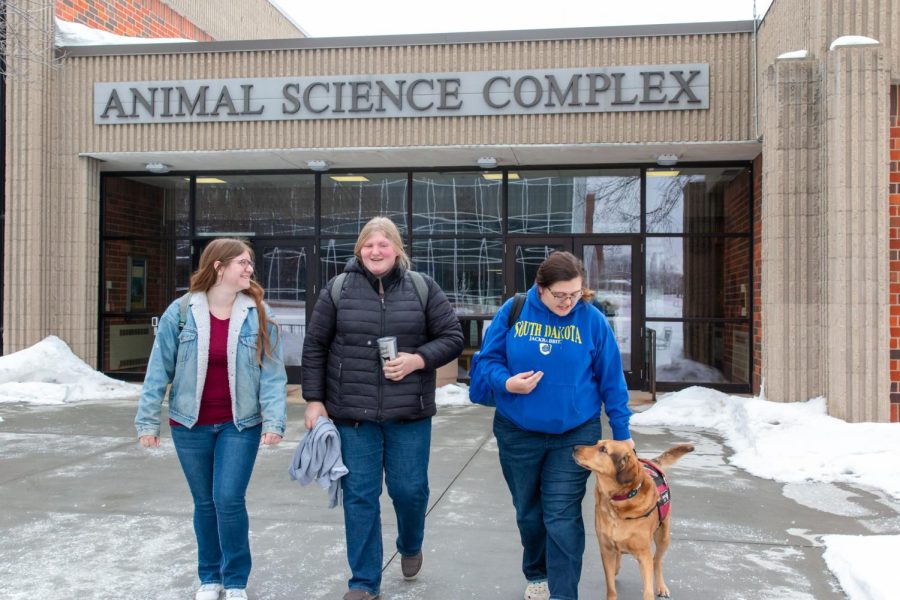Women surpass men in university animal science majors, reflect national growth in field
January 25, 2023
As many South Dakota residents know, this state is a little different when it comes to agriculture. It is not rare for women to be hands on and working on an operation.
Women make up 30% of producers in South Dakota. This is a 16% increase over the national average. The increase of women in the industry is becoming very relevant at South Dakota State University.
Women have officially exceeded the number of men in the animal science major at SDSU. For many years, agriculture and especially animal science have been a predominately male career path. Currently, women are accounting for over 80% of the people in the animal science major at SDSU.
“I think the number of women has surpassed men in animal science because of the many jobs that our animal science program prepares you for alongside the preparation of returning to the farm,” animal science major Mitchell Kaul said. “I think a lot of men decide to go straight to the farm out of high school in order to get an income earlier in life.”
Students noticed this trend was occurring, and they generally agree that the industry has become so diverse that there are many options for women besides going directly back to the farm or ranch.
“I think the diversity of job opportunities in the industry now allows for women to excel,” Tate Risse, an animal science graduate, said. “As compared to the past, where nursing and teaching took many women away from the major.”
Female students on campus were proud of being animal science majors and were excited for the increase of women in the major. The major at SDSU is split between four specializations: science, food animal health, production management and industry relations.
The science and food animal health specializations are focused on students who are interested in pursuing vet school after getting a bachelor’s.
Production management teaches students about what it takes to feed the world and is more based on running their own operations.
Industry relations teaches students how to communicate agriculture across the world. The industry relations specialization is new, being introduced in 2021.
“Being a woman in animal science is very important to me, because with that title I am able to relate to other women within the major,” Annabelle Hlavac said. “I am the first female in my family to pursue an agriculture-related career choice.”
Kyle Shaw, an animal science/pre-vet student, believes that the field has lots of different opportunities that are enticing to women.
“I also believe that people are becoming aware of the need for agriculture in the world and are wanting to make sure we continue to make agriculture a priority for generations to come,” Shaw said.
Cheyenne Hulstein thinks that part of the change in norms for agriculture has to do with social media. She said “Agvocates” are helping promote the career path more now than her parent’s generation.
The students came to a consensus that agriculture is becoming diverse and more willing to allow women into the industry. Both male and female students are looking forward to seeing how the program is going to continue to change for years to come.
























